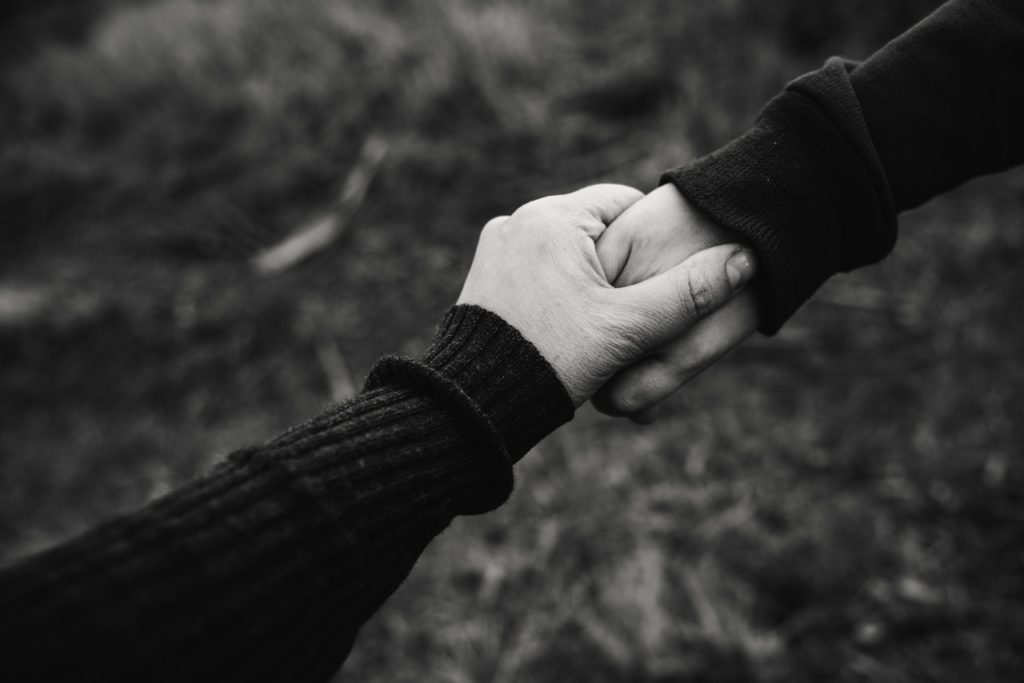If you are human, the answer is “Yes.”
If we are living and breathing, we do have responsibilities for and to others. This is not meant to be an option. Why do so many see it as such? To not respond to another who is in danger or pain is to not be fully engaged as a human being. The truth is “None of us lives to himself…” (Romans 14:7). “If one member suffers, all the members suffer with it…” (1 Corinthians 12:26). Yet, how many of us consistently abide by this? Even though we may inwardly resonate with these truths, they are not always reflected in our daily choices. It’s one thing to nod our head in agreement with the above verses, it’s a whole other thing to actually allow these truths to propel us to action.
Nowhere is this more evident than with intimate partner violence where the unspoken belief is a “man’s home is his castle.”
But what if that same castle is a prison for his wife? The home is supposed to be a safe place for all who abide there. When it becomes a war zone where verbal, emotional, or physical bullets are flying should we still “not get involved”?
Women are being murdered every day, countless times a day, by their intimate (or former intimate partner) and the world is looking away. In fact, 3 women a day are murdered by their intimate or former intimate partner in the US (Violence Policy Center, When Men Murder Women 2015 Homicide Data). Likewise, 1 out of 3 women globally have been beaten, coerced into sex or otherwise abused during their lifetime. Source: United Nations.
The data reveals that what is happening outside the church is also reflective within the church. According to Nancy Nason-Clark, domestic violence advocate, researcher for over 25 years, and author of numerous books on the subject, “Domestic violence happens within and beyond communities of faith in approximately the same prevalence rates.” Important to note, men can also be victimized in this manner. Abuse of this nature is not a gender issue, but rather it is a crime regardless the gender. And, it can be even more difficult to access resources if you are a male victim of intimate partner abuse.
Bottom line, to look away when abuse of any kind is occurring is to be an accomplice.
This may be hard to hear, but wasn’t it harder to hear about the Bill Hybel’s cover-up that spanned several decades? What about the deplorable and dangerous counsel Paige Patterson gave to the woman who sought his advice after she shared with him that she was being abused by her husband? Just like God Himself was not okay with Cain’s response to His question, “Where is Abel your brother?” (Genesis 4:9), we, the Body of Christ, must not minimize, rationalize or outright cover-up abuse that is occurring in our churches all across this globe. Just as Cain was his brother’s keeper, we are accountable too. We are each other’s “keepers.” This was true in the days of Genesis and it is still true today. Regardless if the abuser is the pastor or the household patriarch, it’s sin. The church should be the safest place in the world for victims of domestic violence or sexual assault to seek help. But, is it?
Could this story have turned out differently if someone intervened? Rarely is homicide the first act of violence in cases such this. There are signs, often clear signs, that something is very wrong before a tragedy of this magnitude occurs.
If “we are the world,” and “it takes a village” where is the world and where is the village? If we truly are our “sister’s keeper” where are all the keepers?
The intent behind these questions is not to incite shame or blame. Rather, the intent is to inspire a call to action as a society and as individuals. Individuals comprise the world, the village and the keepers. Until we turn up the volume on our moral conscience, we will turn a deaf ear and a blind eye to our neighbor. There are mothers, sisters, daughters living next door to you, sitting in the cubicle beside you at work, or warming the pew near you at your synagogue, church or mosque. Do you hear screams or verbal threats coming through your adjoining walls? Do you see the bruises on her arms? Do you notice that she avoids your gaze? These are just a few indicators that someone is the victim of intimate partner abuse.
Once we acknowledge that we are connected globally to the entire human race, we realize that we do have a responsibility for and to each other.
We are our sister’s (or brother’s) keeper. If it was your sister screaming for help next door wouldn’t you want her neighbor to call the police? I know I would.
So how do you help? I believe one of the most important things you can do is to educate yourself regarding this crime. Read quality, fact-based information so you have an accurate understanding of the complexities surrounding domestic abuse. Challenge any faulty assumptions you may have and replace your faulty thinking with truth. Do not assume you know. Do not fault yourself for not knowing. But, do not remain ignorant either.
In addition, familiarize yourself with the hotlines and resources that are available for victims of domestic violence. One quick google search will provide you with a plethora of helpful programs and supportive resources that you can share with someone in need. Remain aware of potential victims around you. There is no prototype for victims. Often it can be the person you least likely suspect. If someone does entrust you with their story, please believe them. It takes an enormous amount of courage to disclose this dark secret and it is often shrouded in a sense of personal shame. Do not add to that shame with judgement or assumptive pretense. Unless you’ve been there, you have no clue how deep this pit is to climb from. Extend a hand, give a hug. Believe.
We are our sister’s keeper. Be the keeper the world needs.



